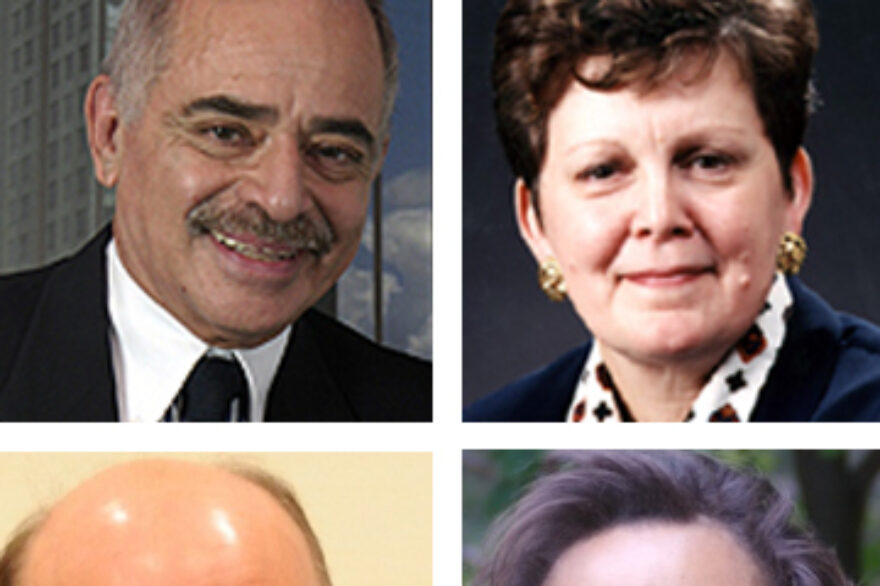On May 21-22 of 2003, a group of 26 social scientists from academic, advocacy, and public health organizations convened for a research conference in Santa Monica, California titled Developing a Research Agenda for Entertainment Education and Multicultural Audiences. The conference focused on the impact of health content in TV storylines on African American and Hispanic audiences in the United States. The objective of the conference was to gain a better understanding of the potential for TV shows to encourage positive health effects among African American and Hispanic audiences. This two-day conference included expert presentations, real-world examples by social marketing and entertainment industry experts and discussion groups organized to identify other examples, summarize lessons learned and develop next steps for entertainment-education research among multicultural audiences.Read the conference report Sponsored by the Centers for Disease Control and Prevention (CDC) and the Hollywood, Health & Society (HH&S) program at the USC Annenberg Norman Lear Center, this conference was designed to build on the foundation of a 2000 agenda-setting conference sponsored by CDC in Decatur, Georgia. The specific purpose of the 2003 conference was to focus on the effects of entertainment education (EE) on multicultural television audiences. The collective task of conference participants over the course of the two-day program was the following:• Assess the existing research and theory with respect to Entertainment Education outreach to multicultural audiences• Identify research gaps• Propose a meaningful and practical research agenda to better understand, anticipate and harness the effects of health-related television storylines on African American and Hispanic audiencesThe conference began with five research presentations and a review of the relevant literature, which provided an overview of current and past EE efforts focused on multicultural audiences. Presentations were followed by two media industry panels—the first focused on Spanish-language telenovelas with leaders from that industry, and the second focused on how the U.S. entertainment industry works, with a panel of entertainment and social marketing representatives. The third and final panel addressed funding-related issues with representatives from three different funding agencies—the Centers for Disease Control and Prevention, the National Cancer Institute, and The California Endowment.Each of these presentations and panel discussions informed the agenda-setting process that took place the second day of the conference. This process involved three distinct tasks:• to determine the specific criteria to be used for judging the merits of future EE research• to generate a list of potential research questions and ensure that key research questions are not overlooked• to prioritize the potential research questions in the order of perceived importanceBy the close of the conference, 11 criteria and 13 research questions were generated and ranked by the participants. These are summarized in the conference report, which is being shared broadly with partners in public health, academic, advocacy and entertainment organizations.Participants included:• Vicki Beck, MS, Hollywood, Health & Society• Michael Cody, PhD, Annenberg School for Communication• Geoffrey Cowan, Dean, USC Annenberg School for Communication• Vicki Freimuth, PhD, Centers for Disease Control and Prevention• Martin Kaplan, PhD, The Norman Lear Center | USC Annenberg School for Communication• May Kennedy, PhD, CDC Office of Communication• Katherine Lyon Daniel, PhD, National Center on Birth Defects & Developmental Disabilities• Max R. Lum, EdD, MPA, National Institute for Occupational Safety and Health• Imani Ma’at, EdD, Morehouse School of Medicine• Sheila Murphy, PhD, USC Annenberg School of Communication• Clara Olaya, MA, Centers for Disease Control• Joseph Petraglia, PhD, CDC, Global AIDS Program• Marsha L. Vanderford, PhD, National Center for Environmental Health• Rina Alcalay, PhD, UC Davis Medical School• Vibert C. Cambridge, PhD, Ohio University• Ralph DiClemente, PhD, Rollins School of Public Health, Emory University• Deborah Glik, ScD, UCLA School of Public Health• Sonya Grier, PhD, Stanford University• Yolanda Partida, MSW, DPA, “Hablamos Juntos” National Program Office• Michael Reisch, PhD, Children Now• Carolina Reyes, MD , The California Endowment• Miguel Sabido, Writer / Producer / Professor• Charles Salmon, PhD, Michigan State University• K. Vish Viswanath, PhD, National Cancer Institute• L. Monique Ward, PhD, University of Michigan

